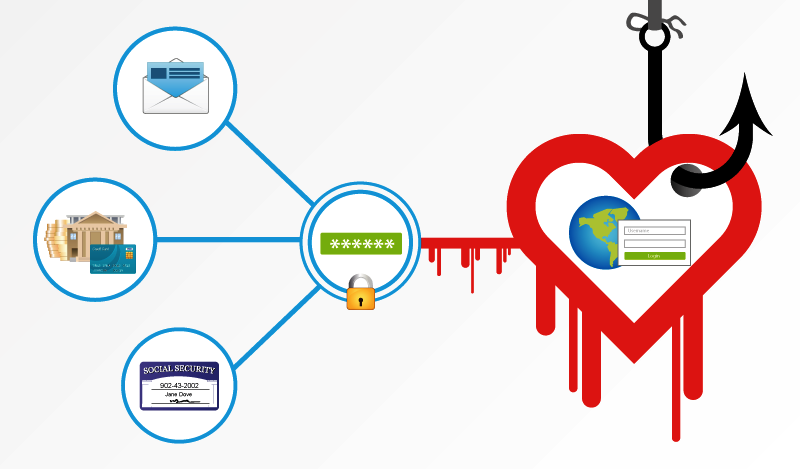
SAN FRANCISCO – Here in the Bay Area, the home of the world's largest technology companies, government spying and the tracking and storage of bulk personal data by companies like Google and Facebook has opened a rift in the technology prospects of the region. Now, there's a new word going around: Internet Justice.
On a recent day, I sat down with two former Google programmers who have begun their own start-up aimed at recreating the Internet into a tool more “for the people” than “for the CEOs.” The project is still in stealth mode which is why few details can be released about the individuals or their start-up.
What can be revealed, however, is the pair's philosophy: that the current, unrestrained data collection by private companies and the government is threatening the very nature of how the Internet – and, likewise, the companies that populate it – were intended to run.
“What we are seeing right now is the fruition of a lack of oversight on the Internet," said one of the programmers, who left Google because he believed the company's data collection methods infringed on basic human rights. "It enables companies to amass massive amounts of information about their users, people who search online, and their personal data.”
“I view the Internet as something that should be for all people and this goes directly against the policies and management at places like Google, where the profits remain in the hands of very few – and those few people are determining the future of how we search and what we do online.”
He and his female programming partner are building their platform on the premise that the Internet and technology companies can go beyond the status quo: by delivering useful enterprises that aren't just cash cows for the wealthy.
For her, it is a matter of justice.
“We have to see the Internet as something that can build democratic institutions. This is key to the future of the Internet and how companies use information. Right now, we are seeing the Internet being used as a marketing tool where every click is monetized and saved so companies can direct ads, [and] sell personal information to other companies or the government in what we believe is a direct violation of a citizens’ right to privacy,” she said.
In recent weeks, as information about the Heartbleed bug came to light, it has become more and more clear that not only the NSA but Google and other companies may have known about the bug long before it was made public – and used it to garner further information about online users. The scandal only highlighted the growing divide between citizens calling for a restitution of their privacy and the financial and political leaders who are increasingly shaping Internet policy.
As Sean O'Neal, president of the mobile-ad platform Adaptly, recently told the trade journal Advertising Age: “The universal ID today in the world is your Facebook log-in. This industry-wide challenge of mobile tracking has sort of quietly been solved, without a lot of fanfare.”
But the fanfare, it seems, is starting. In a series of reports, including one from Fairfax Media, Google has been accused of learning about the Heartbleed bug but failing to report it – what tech experts believe amounts to evidence that Google was exploiting the OpenSSL bug for its own purposes.
"Bodo Moeller and Adam Langley of Google commit a patch for the flaw (This is according to the timestamp on the patch file Google created and later sent to OpenSSL, which OpenSSL forwarded to Red Hat and others. The patch is then progressively applied to Google services/servers across the globe," wrote Fairfax Media in a timeline of the Heartbleed bug debacle.
If the facts stand, before the bug was made public, Google had learned about it and had already begun securing its networks days before other companies became aware of the issue on April 1.
"Google Security notifies 'OpenSSL team members' about the flaw it has found in OpenSSL, which later becomes known as 'Heartbleed,'" Mark Cox at OpenSSL said on the social network Google Plus, according to Fairfax. Google did not respond to queries from Occupy.com relating to its early knowledge of the Heartbleed bug.
Meanwhile, Facebook CEO Mark Zuckerberg told the New York Times's Farhad Manjoo that many upcoming products and services won't even be using the name Facebook as the company pushes further into its users' private lives.
What the ex-Google programmers are saying, like so many who now call for a new era in Internet Justice, would make rational sense in a democracy: if tech giants like Google, Facebook, Apple and Twitter take information they've gathered and sell it to companies, government agencies and a potentially endless array of marketing groups tracking individuals on a daily basis, it creates massive profits for the heads of Silicon Valley companies at the expense of basic privacy rights of citizens. This type of commodification of personal data, they maintain, is unjust at its core.
“The problem here is that in the current model of the Internet, private and personal information are a commodity,” said the female programmer. “Every click, every email sent: this is a moneymaker for companies like Google and they sell this to others for a profit. The people, like you and me, see none of this profit, yet we sit around and don't get upset. Why? This is what we want to do: change that mentality.”
By creating a new platform – and perhaps a new Internet Collective altogether – the programmers say they hope to restore power to average Internet users by keeping personal information safe from prying eyes.
As Dan Gillmore concluded last week in his Digital Being column in The Guardian: “The situation will only get worse if we don't take what we learn and insist – to the politicians who represent us and the companies we patronize – that the details of our lives are not theirs to buy and sell. I don't believe we get the society we deserve, but we do get the one we allow."
3 WAYS TO SHOW YOUR SUPPORT
- Log in to post comments



















